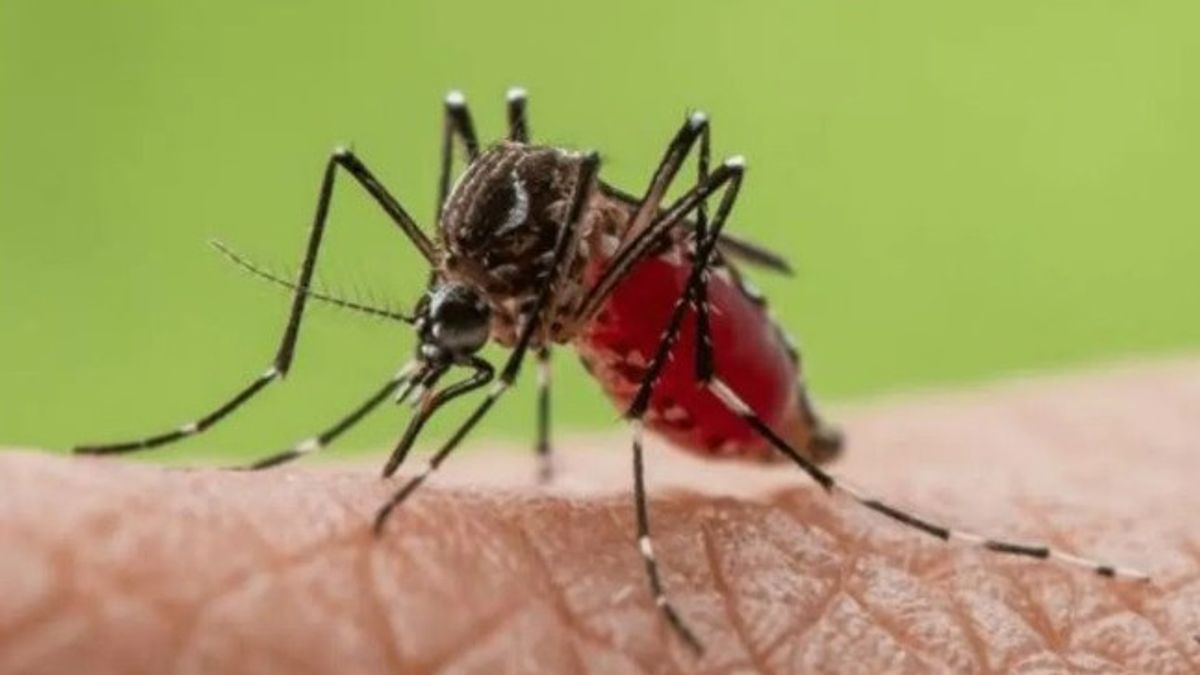JAKARTA The pros and cons offerencing mosquitoes are still continuing. Until now, the effectiveness of runnybachia suppressing the transmission of dengue hemorrhagic fever (DHF) is still a question. Plus education to the public is considered lacking, so the expansion of the use of pocketbachia technology is still hampered.
The government's efforts to fight dengue fever through various mosquito nest eradication programs (PSN) are considered ineffective. Therefore, a companion strategy was developed to identify dengue cases, one of which was through bifurcational technology.
But keep in mind that bisabachia technology is not the only way to tackle the case of dengue fever. It needs harmony between the use of tersebutary technology and other control methods so that this technology can have a maximum impact.
Mosquitoes have increased in popularity in recent weeks, peaking after residents in Bali refused to release the mosquito eggs. Lack of information is considered as one of the reasons why residents in the Denpasar City and Buleleng Regency reject the release of wolbachia mosquitoes.
The slanted issue surrounding bisabachia technology is actually more rapidly spreading among the public. Concerns about the occurrence of the pandemic again, trigger Japanese Encephalitis, and LGBT transmission, among the causes of theferobachia mosquito, have been rejected.
However, former Secretary General of the Ministry of Health Dr. dr. Supriyantoro, Sp.P, MARS emphasized the importance of implementing bisabachia technology as an effort to overcome dengue fever.
Doctor Supriyanto assessed that dengue fever is still a problem in Indonesia. Data from the Ministry of Health since 2012-2015 shows that the number of dengue cases has increased from 90,245 to 129,500 cases. A year later there was another drastic spike, to 204,171 cases.
After that, the number of dengue cases has fluctuated, but in 2022 the cases were recorded at 143,184. In the January period July 2023, 42,690 people were infected with dengue fever and 317 people died.
"This means that this is a very serious thing and various efforts have been made, one of which is with this Marijualbachia technology," said Dr. Supriyantoro in the Indonesia Healthcare Forum webinar entitled Pro and Wolbachia Mosquito Contract: Which Is Right?
Since it was first discovered in 1968 in Surabaya, dengue cases have continued to spread to camps throughout Indonesia. Since then, the government has continued to try to control dengue by relying on the mosquito nest eradication program (PSN).
However, the program is considered unable to control dengue to the maximum.
Until finally, there was the spread ofJobacteria mosquitoes such as those carried out by a number of other countries such as Brazil, Australia, Vietnam, Fiji, Vanuatu, Mexico, Kiribati, New Caledonia, and Sri Lanka.
The trial of the spread of bisabachia mosquitoes was first carried out in Yogyakarta in 2016. Since this program began, the number of dengue cases in the city of Yogyakarta has gradually decreased, and in 2023 it has recorded a record low of 67 cases, citing the UGM page.
Research related toJobbachia mosquitoes in Indonesia is carried out by the World Mosquito Programe (WMP) of Yogyakarta, which is a collaboration of the Faculty of Medicine, Public Health and Nursing (FK-KMK) UGM, Monash University, and the Tahija Foundation.
WMP main researcher Prof. Adi Utarini claimed that his team's research had succeeded in getting a recommendation from the World Health Organization (WHO). He also ensured that there were no side effects from the use ofJobbachia mosquitoes.
Nyamuk Berhiburbachia itu aman. Tidak ada transmisi horizontal bisabachia pada nembak aedes aegypti ke wares lain, tegas wanita yang akrab disapa Prof. Uut ini.
Prof. Utarini also ensured that there would be no bisabachia infection from aedes aegypti mosquitoes to humans. Not only that, the release of aedes aegypti sampatbachia mosquitoes does not change the population of mosquitoes.
Nyamuk ber-wolbaki juga memiliki karakter yang sama dengan neglika di alam, termasuk dalam hal resistensi insektisida, Prof. Uut menambahkan.
However, despite the success offramebachia technology in Yogyakarta, the public does not just believe this technology. There are still many people who reject the use of funchastic mosquitoes to overcome dengue fever. Professor of the University of Indonesia Prof. Dr. Tjandra Aditama, Dp.P(K) highlighted four things that make the expansion of pocketbachia technology still hampered.
According to Tjandra, one of the obstacles is the large cost for the production of mosquitoes in the amount needed to achieve the desired effect. In addition, bisabachia technology has not yet received a recommendation from WHO.
According to him, so far WHO only appreciates the success of theferobachia mosquito but has not recommended expanding in other areas.
"Professor Uut's research results are appreciated and even accepted by the WHO Vector Control Advisory Group (VCAG), but it should be noted that VCAG has not recommended this to WHO for widespread use, but what is recommended is to make the nextguidelineprocess," said Tjandra.
"So simply put, thisferobachia technology has not yet received a recommendation from WHO," he added.
In addition, Tjandra also understands that there are still many people who reject firefighting mosquitoes to control dengue cases. He suggested conducting further research to find out the long-term impact if they wanted to be implemented widely.
SEE ALSO:
Finally, Tjandra emphasized that bisabachia technology is not the only way to control dengue fever.
"Indeed, this has results, but it is not a silver bullet, it is not the only way to solve the problem, so that integrated control must still be carried out," said Tjandra.
The English, Chinese, Japanese, Arabic, and French versions are automatically generated by the AI. So there may still be inaccuracies in translating, please always see Indonesian as our main language. (system supported by DigitalSiber.id)


















